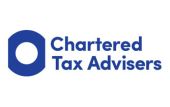
Thinking about buying back shares through CPOS – Company Purchase of Own Shares?
If so, make sure you seek legal as well as taxation advice first. CPOS – Company Purchase of Own Shares – might appear to be a straightforward, tax-efficient way for shareholders to release funds and exit the business.
But the process isn’t without potential pitfalls. Tax expert Nick Wright, associate director at Jerroms Miller Specialist Tax, looks at what can go wrong – and what company owners and their accountants must do to prevent problems further down the line.
When undertaking a CPOS, a Company Purchase of Own Shares, there are obviously a number of tax elements that need to be addressed from the outset.
Certain conditions must be satisfied to ensure it is treated as a capital gain rather than income, but the most immediate concern for owners and their accountants/business advisers is to look carefully at the legal aspects.
Recently we’ve seen a number of cases where the advice of a company law solicitor wasn’t sought at the time of the CPOS, resulting in major headaches later on. Failure to satisfy all the legal requirements can mean the shares haven’t been bought back by the company, technically rendering the CPOS void and causing huge financial and transactional problems for the company, its shareholders and accountants.
A lot of the legislation governing CPOS is archaic but you still need to be aware of it if you want to avoid an unpleasant surprise. Remaining shareholders are often blissfully unaware anything is wrong until years later when they come to sell the company. It is often only then, when the buyer’s accountants are doing due diligence, looking at the share history and examining agreements, that legal anomalies come to light.
Such situations can take a long time to resolve and can prove costly. We advised on an Employee Ownership Trust recently for a company which was owned 50/50 until 15 years ago when one of the owners sold back his shares for £300,000.
The problems with this CPOS lay undiscovered until the company decided to enter into the EOT. At that point it became apparent that legal requirements had not been met during the buyback so the former owner still legally owned half the business.
Fortunately, he agreed to sign something that said he had sold back his shares and had no further rights to them. The EOT was able to go ahead – but not without several months’ delay and the expense of instructing a high level barrister to approve the necessary paperwork.
Had the former owner not agreed to sign this waiver, then there may have been an argument he was due 50% of the sales proceeds of the current sale to the EOT. In any case, there is a risk that interest and financial penalties accrued over the 15 years on what may be considered by HMRC a loan on the original buyback would have come to £300,000 – double the original cost of the share buyback.
In another example, the owner of a successful business purchased his wife’s shares when they got divorced as she wasn’t actively involved in running the company. Both parties had 50 ordinary shares each worth about £500,000 and the CPOS was part of their divorce settlement.
Unfortunately for the husband, the CPOS’s legal aspects weren’t done correctly, meaning that 20 years later when he came to sell the company , it emerged that the wife still owned half the business. In that time the husband had received millions of pounds in dividends, and because the wife had not legally sold her shares, she too was due the same amount, something that was clearly unaffordable for the company now. Additionally, the husband’s dividends had been paid utilising the majority of available reserves, if the husband’s dividends only represented 50% of the share capital this would also result in the dividends being paid illegally for company law purposes.
It may be that the amount of money owed by a company when buying back shares is quite small – in one example, as little as £7,000. As it’s a minor interest the company owners don’t always give it much thought. But if, when the business is later sold for several million pounds and you discover that the CPOS is void, then you’re going to have to find a way to correct it.
Accountants and business advisers tend to be quite close to their clients and so want to try and help them keep costs to a minimum – especially in transactions worth only a few thousand pounds. Legal advice can put another £3,000-£4,000 on a CPOS bill, as will tax advice to sort out HMRC clearances and ensure all CPOS tax conditions are met.
This might seem like an expensive outlay, especially on a small transaction, but ensuring that all CPOS aspects are done properly will avoid huge expense and hassle later on.

Nick Wright
This email address is being protected from spambots. You need JavaScript enabled to view it.
07891 203889








